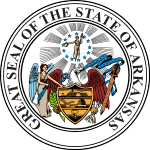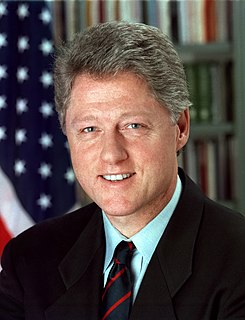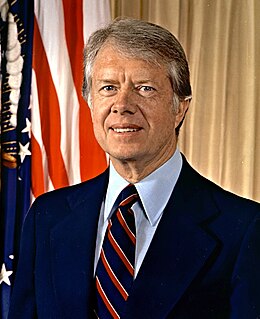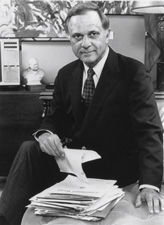This article needs additional citations for verification .(March 2015) (Learn how and when to remove this template message) |
| |||||||||||||||||
| |||||||||||||||||
 Results by county Clinton: 50–60% 60–70% 70–80% White: 50–60% 60–70% 70–80% | |||||||||||||||||
| |||||||||||||||||
| Elections in Arkansas | ||||||||||
|---|---|---|---|---|---|---|---|---|---|---|
 | ||||||||||
| ||||||||||
The Arkansas gubernatorial election of 1980 was only that state's third election since Reconstruction when a Republican candidate won the governorship, and the first in which an incumbent was defeated.

The Republican Party, also referred to as the GOP, is one of the two major political parties in the United States; the other is its historic rival, the Democratic Party.
The incumbent is the current holder of an office. This term is usually used in reference to elections, in which races can often be defined as being between an incumbent and non-incumbent(s). For example, in the Hungarian presidential election, 2017, János Áder was the incumbent, because he had been the president in the term before the term for which the election sought to determine the president. A race without an incumbent is referred to as an open seat.
Contents
- Democratic primary
- Candidates
- Results
- Republican primary
- Candidates 2
- Results 2
- Campaign
- Result
- Effect
- References
One-term Democratic Governor of Arkansas Bill Clinton was narrowly defeated by Republican Frank D. White, which made him, as he joked, "the youngest ex-governor in the nation." Clinton ran again two years later and regained the governorship, continuing to serve until he was elected to the presidency in 1992. Both the Democratic and Republican primaries were held on May 27.

William Jefferson Clinton, commonly known as Bill Clinton, is an American politician who served as the 42nd president of the United States from 1993 to 2001. Prior to the presidency, he was the governor of Arkansas from 1979 to 1981, and again from 1983 to 1992, and the attorney general of Arkansas from 1977 to 1979. A member of the Democratic Party, Clinton was ideologically a New Democrat and many of his policies reflected a centrist "Third Way" political philosophy.

Frank Durward White was an American banker and politician who served as the 41st governor of Arkansas. He served a single two-year term from 1981 to 1983. He is one of two people to have defeated Bill Clinton in an election, the other being the late U.S. Representative John Paul Hammerschmidt of Arkansas' 3rd congressional district.

















